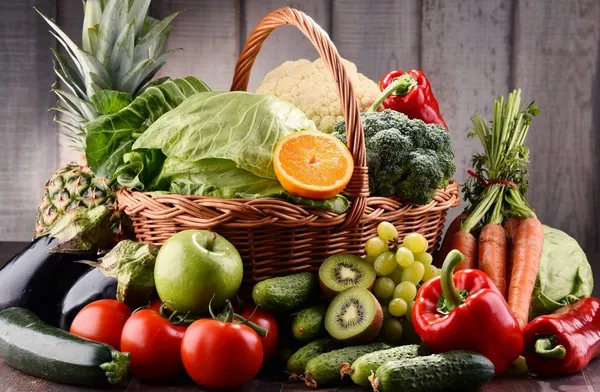The rise in popularity of vegan diets has sparked discussions about their nutritional adequacy. While plant-based diets offer numerous health benefits, it’s important to ensure that essential vitamins and nutrients are not overlooked. In this article, we will delve into the key vitamins that may be lacking in vegan diets, explore their significance for overall health, and provide practical tips on how to obtain these nutrients through plant-based sources and supplements.
The Nutritional Advantages of Vegan Diets
1. Plant-Powered Nutrients
Vegan diets are rich in fiber, antioxidants, and phytochemicals found in fruits, vegetables, grains, legumes, nuts, and seeds.
2. Lower Saturated Fat and Cholesterol
Plant-based diets tend to be lower in saturated fat and cholesterol, contributing to heart health and reducing the risk of chronic diseases.
Identifying Vitamins Lacking in Vegan Diets
1. Vitamin B12
Vitamin B12 is one of the most critical nutrients often lacking in vegan diets due to its absence in plant foods. It plays a vital role in neurological function, energy metabolism, and red blood cell formation.
2. Vitamin D
While sunlight exposure contributes to vitamin D synthesis, vegan diets may lack adequate levels of this nutrient, which is essential for bone health, immune function, and overall well-being.
3. Omega-3 Fatty Acids
Specific omega-3 fatty acids like EPA and DHA are primarily found in fatty fish. Plant-based sources like flaxseeds, walnuts, and chia seeds provide ALA, which the body can partially convert to EPA and DHA.
The Significance of Vitamin B12
1. Cognitive Health
Vitamin B12 is crucial for maintaining neurological function, preventing cognitive decline, and supporting mood regulation.
2. Red Blood Cell Formation
Vitamin B12 is essential for the production of red blood cells, helping to prevent anemia and fatigue.
The Role of Vitamin D
1. Bone Health
Vitamin D supports calcium absorption and bone health, reducing the risk of fractures and osteoporosis.
2. Immune System Support
Adequate vitamin D levels play a role in modulating the immune system and promoting overall immune function.
Obtaining Nutrients from Plant-Based Sources
1. Vitamin B12 Sources
Vegans can obtain vitamin B12 through fortified foods like plant-based milks, breakfast cereals, and nutritional yeast. Supplements are recommended to ensure sufficient intake.
2. Vitamin D Sources
Vitamin D can be sourced from sunlight exposure, fortified foods (such as fortified plant milks and breakfast cereals), and supplements. Consulting a healthcare provider for personalized recommendations is advised.
3. Omega-3 Sources
ALA-rich foods like flaxseeds, chia seeds, walnuts, and hemp seeds provide plant-based sources of omega-3 fatty acids. Supplements derived from microalgae can offer EPA and DHA directly.
The Role of Supplements
1. Vitamin B12 Supplements
Regular vitamin B12 supplementation is recommended for vegans to prevent deficiency. Cyanocobalamin and methylcobalamin are common supplement forms.
2. Vitamin D Supplements
Vitamin D supplements, especially during winter months or with limited sun exposure, can help maintain optimal levels.
3. Omega-3 Supplements
For those seeking a direct source of EPA and DHA, algae-based omega-3 supplements offer a vegan-friendly option.
Expert Insights
1. Registered Dietitian Advice
According to Lisa Jones, RD, “Vegans need to be proactive in obtaining vitamin B12, vitamin D, and omega-3 fatty acids. Consult a registered dietitian or healthcare provider to determine your individual needs and the best supplementation strategy.”
2. Balanced Approach
Balancing nutrient intake through a variety of plant-based foods, fortified products, and supplements can help ensure adequate nutrient levels in a vegan diet.
Conclusion
In conclusion, vegan diets offer numerous health benefits, but it’s important to be mindful of potential vitamin deficiencies. Vitamin B12, vitamin D, and omega-3 fatty acids are nutrients that may require special attention in a vegan diet. By incorporating fortified foods, plant-based sources, and supplements when necessary, vegans can maintain optimal health and well-being. Consulting a healthcare provider or registered dietitian can provide personalized guidance on meeting nutrient needs and maintaining a balanced and nutritious vegan lifestyle.


